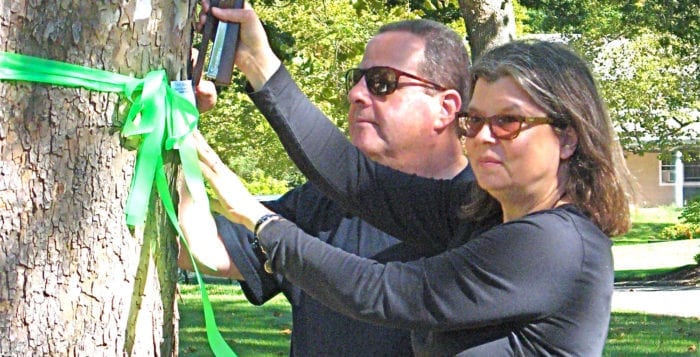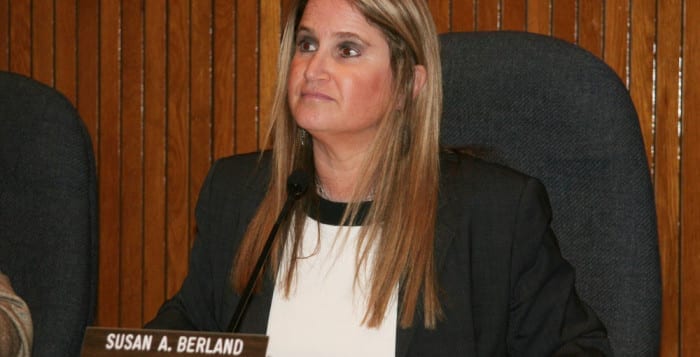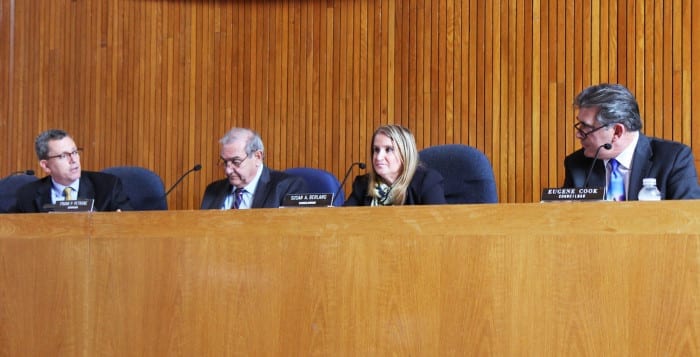by Beverly C. Tyler
Second in a two-part series.
In mid-1775, while British forces, headquartered in Boston, were facing General George Washington and the Continental Army for the first time, Patriot regiments on Long Island were gearing up to defend the island from Great Britain’s large, well-trained army. Colonel Josiah Smith’s Brookhaven Regiment of 12 companies included Captain Selah Strong’s 7th Company with First Lieutenant Caleb Brewster, seven additional officers and 59 nonrated soldiers.
In the spring of 1776, after forcing the British Army to abandon Boston, Washington moved his army to New York City. The British army and naval forces followed soon after and entered New York Harbor at the end of June with 40 warships, supply ships and troop ships with more than 7,000 British and Hessian soldiers. Washington split his army, placing half on Long Island at Brooklyn Heights as he did not know if the British intended to attack Manhattan or Long Island.
By the end of August, when they attacked Washington’s Continental Army on Long Island, British forces had swelled to more than 20,000 troops. It was to be the largest battle of the Revolutionary War and a major defeat for Washington who lost more than a thousand troops killed or captured.
In early August Smith’s regiment was ordered to join the Continental Army defending Long Island. The regiment, including Strong’s 7th Company marched west to General Nathanael Greene’s camp in Flatbush. In his diary, during the battle, Smith wrote, “August ye 27 we wors alarmed aboute 2 in the morning, and we had many scurmishes and thay atemted to forse our Lines & they kild 1 of my men & we Suppose that we kild a number of them & we Drove them Back & Laie in the trenches all nite.”
It rained all day and night on Aug. 28 and Smith noted, “… thar wors a continual fire kep up between us and the Regulars (British)…” The next day, with continuous rain, thunder and lightning they crossed onto Manhattan. Smith with some members of the regiment marched into Connecticut and finally back onto Long Island at Smithtown. At this point the officers and soldiers with Smith dispersed and went home, many moving their families to Connecticut and the rest, including Strong staying on Long Island.
Strong could easily have moved to Connecticut as he owned land in Middletown, but he stayed and even attended, as a trustee, meetings of the Brookhaven Town Board. Strong was one of many Long Islanders to own property in Middletown or to move there as refugees. One refugee who owned property and spent time in Middletown was William Floyd of Mastic, Long Island’s signer of the Declaration of Independence. Floyd’s first wife died in 1781. Three years later he married Joanna Strong, Strong’s paternal first cousin. Joanna’s brother Benajah served as a captain in Colonel William Floyd’s regiment in 1776 and participated in Benjamin Tallmadge’s successful raid on Fort St. George in Mastic in 1780.
After his imprisonment in New York City in 1778 and his subsequent release, Strong became a refugee in Connecticut, probably based in Middletown. In 1780, following his election as president of the Brookhaven town trustees, a position equal to today’s town supervisor, Strong returned to Long Island, despite the continued presence of British and Loyalist troops, and joined his wife on Little Neck, her family’s ancestral home in Setauket (now Strong’s Neck).
Living on Little Neck with British forces still in control of Long Island, Strong had to be aware of the dangers. Kate Wheeler Strong wrote that, during this period her great-great-grandfather, Strong, saved the life of a British officer. “Not that he was fond of the British, but he had a good reason for saving this man’s life. While walking one day with Caleb Brewster … on the neck on which I now live, they saw a British officer on the shore below. Brewster aimed his gun, but my ancestor stopped him, explaining that while Caleb could flee in his boat, he himself lived here and would have to bear the brunt of the shooting. So Brewster lowered his gun, and the British officer passed on safely …”
Strong wrote a will in 1775, which he later voided, when the war was becoming more certain and he needed to put something, at least temporarily on paper. Kate Strong wrote, “He evidently thought in the event of his death it would not be safe for his wife and children to remain there for he ordered all his land to be sold including tracts on the south side of the island. His wife was to have any furniture she desired …”
His wife was made executrix, and with the help of three other executors, she was to manage the estate until their eldest son Thomas became 21. The names of his executors were Benjamin Havens, Phillips Roe and Samuel Thompson.
The historic Terrill-Havens-Terry-Ketcham Inn during the Revolutionary War was the home and tavern of Benjamin Havens, a spy for the Culper Spy Ring. He married Abigail Strong of Setauket, sister of Strong and related to Abraham Woodhull through their mother, Suzanna Thompson, sister of Jonathan Thompson and aunt of Samuel Thompson. Abigail’s sister Submit married Phillips Roe of Port Jefferson. In April, 1776, both Benjamin Havens and Abraham Woodhull were members of the Committee of Safety, the purpose of which was to keep an eye on Tories in the town. Other members included William Smith (Manor of St. George, Mastic), William Floyd (signer of the Declaration of Independence), Brigadier General Nathaniel Woodhull (Floyd’s brother-in-law and second cousin of Abraham Woodhull), Strong (husband of Anna Smith Strong and brother-in-law of Benjamin Havens), Phillips Roe (Abigail Haven’s brother-in-law) and Phillip’s brother Nathaniel.
In June, 1779, Abraham Woodhull, writing as Samuel Culper, reported that all but two mills in Suffolk County served the needs of the British. Benjamin Havens operated one of those two mills. The same month Rivington’s Royal Gazette reported on a plundering party feast at the house of Benjamin Havens at Moriches that included three Long Island refugees, William Phillips, Benajah Strong, and Caleb Brewster.
These extended family members and Brookhaven town leaders were also Patriot spies. The Culper Spy Ring was more than just five names on Benjamin Tallmadge’s code list, it was a large number of Patriots willing to risk their lives to rid Long Island and America from Great Britain’s continuing presence.
Beverly Tyler is Three Village Historical Society historian and author of books available from the society at 93 North Country Road, Setauket. For more information, call 631-751-3730 or visit www.tvhs.org.

















